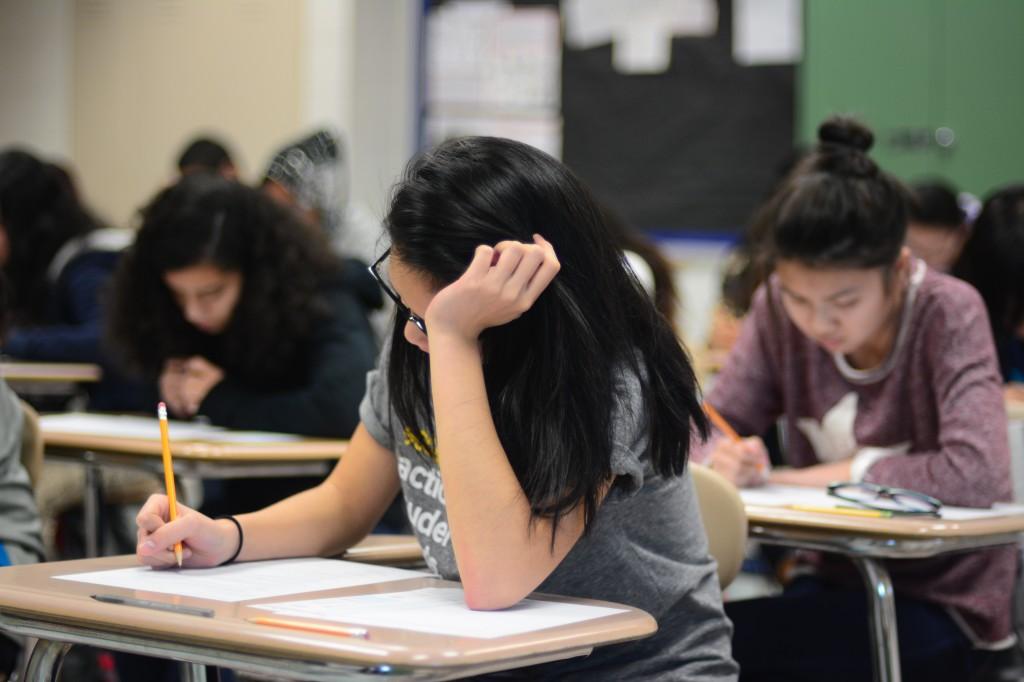
In a significant shift for the Advanced Placement (AP) program, the College Board has announced that “standard paper testing will be discontinued” for 28 AP exams and replaced by a digital format, controlled by the Bluebook application. The announcement sparked a wide array of reactions from Townsend Harris High School students and staff alike.
By May 2025, 16 of the 28 exams will be fully digital and 12 will be hybrid digital, meaning that some portions of the test will be online and the rest will be on paper.
AP World History Teacher Frank Spitaleri expressed mixed feelings about the AP exams becoming digital. One of Mr. Spitaleri’s concerns involved access to resources: “schools might not have that equipment so it could cause a problem.” His concern was regarding the issue where schools must provide students with devices to take their exams which every school may not have.
Students have differing opinions toward this digital AP takeover. Junior Ryan Foster said that the shift “benefits [students] a lot.” He said, “When it comes to math AP exams we now have a built in calculator (Desmos) which has so many built in features that it’s almost like cheating in some ways. On the other hand, you have English AP classes and history AP classes where now your hands won’t fall off when writing lots of long content.”
Senior Uttam Nath said that he feels “negatively towards AP exams turning digital.” He took the digital AP Literature exam last year and said he “felt as though [he] kept losing focus” because staring at a screen for three hours straight impacts how a student feels during the test. He said it made him feel “tired” when answering questions on a computer, whereas on paper “it’s very straightforward with no extra nuisance.”
AP tests will not completely change the material that is needed for students to study. Mr. Spitaleri said, “The test is going to remain the same, the structure will remain the same as it always has been. The only difference will be just that it is digital this year and not paper based.”
Moreover, students will now need to practice test taking on a computer in order to simulate the AP exams, Mr. Spitaleri said. He thinks that as his classes get closer to the AP test, he “would have [his] students do some practice on a computer.” This includes practice DBQs. Similarly, Mr. McCaughey said he will also require his students to type essays and work with documents digitally.
This evolving landscape underscores how technology continues to reshape education and assessment in complex ways, particularly in the years since the pandemic.
The College Board gave numerous digital exams during the pandemic when in person paper exams were not possible. It later introduced the Bluebook application for students to take AP exams digitally. The application must be installed on the student’s personal device or a computer provided by the school. Bluebook will block other applications from being used during the exam and automatically submit any responses that the student made as soon as the test time ends.
In the coming months, students unfamiliar with the application will also have enough time to get a feel for Bluebook through AP classroom and practice tests that are provided to them.




























